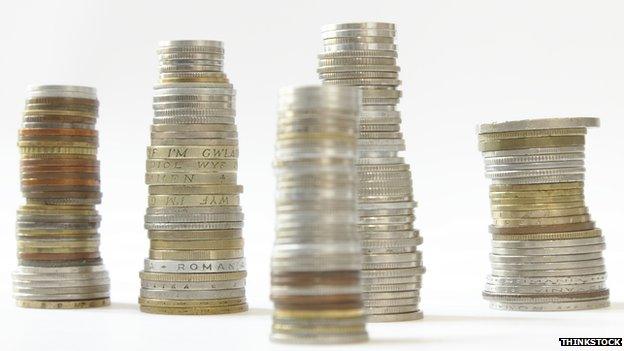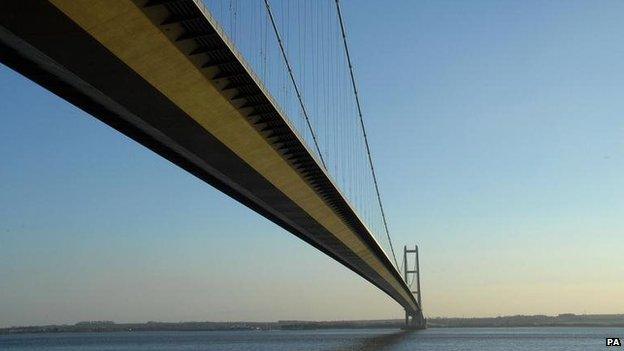Political posturing behind the big City Deal
- Published

So does politics lie behind the City Deal for Glasgow and the surrounding area? Absolutely. One billion pounds worth.
The announcement, indeed, is hedged around by referendum references. Firstly, David Cameron talks of the clout of the UK. Labour's Gordon Matheson, who leads Glasgow City Council, emphasises that by arguing that nothing in Scottish policy could match the UK endeavour.
To complete the party perspective, Danny Alexander, Chief Secretary to the Treasury, will take the lead in evangelising the new scheme which is designed to enhance infrastructure investment in and around Scotland's largest city.
Secondly, the announcement was structured in a fashion to put apparent pressure upon the Scottish government. It was choreographed to result in a conclusion where the only missing link was capital investment from Scottish ministers.
Their response? In public, that they will look seriously at this proposal - and their potential involvement. In private? "Maybe we should have a referendum every year to concentrate Tory minds."
'City autonomy'
Those with longer memories will perhaps recall the Humber Bridge whose origins lay in a tough by-election in the 1960s - with an intervention by Harold Wilson to ensure that the crossing went ahead to cajole voters.
Today's announcement is on a large scale. It covers not just Glasgow but a series of surrounding authorities in the wider Clyde area.
Those authorities are putting up around £130m. The UK Government is investing £500m. The proposal mirrors comparable schemes in English cities where investment has been linked to greater autonomy for the city regions, designed to counter the pull of London.

Harold Wilson pushed through the Humber Bridge project to curry favour in a by-election
It would seem that the Scottish scheme is both somewhat larger - and simpler. It does not appear at first sight to be linked to new powers - for example, the encouragement of elected mayors which feature to some degree south of the border.
Cllr Matheson has long warned that the Glasgow area might lose out by comparison with the English cities. He is enthused by the new project for his city and its environs, arguing that it will be the beginning of a transformation for the area: for example, by reinstating a link from the city to Glasgow Airport.
Mr Cameron and his ministerial colleagues are, understandably, stressing the gains for Glasgow and the surrounding area. The response from the Scottish government, equally understandably given the circumstances, is somewhat cooler.
Political gift
Scottish ministers say they will look seriously at the proposal that they might contribute £500m - while noting, in public, that they have repeatedly tried to gain information about the plan and noting further, in public, that they dislike being presented with a challenge when they have had no opportunity to be involved in the decision making process.
In practice, it seems virtually certain that the Scottish government will take part. To do anything other would be to hand a gift to their opponents.
They say further that the money amounts to some £25m each year over 20 years from the UK government - by contrast, they say, with nearly £400m from the Scottish government for the Commonwealth Games this year.
And they note that it is only independence which will provide the economic levers to drive the development of the Scottish economy. UK ministers, of course, dissent and say that today's announcement exemplifies their case.